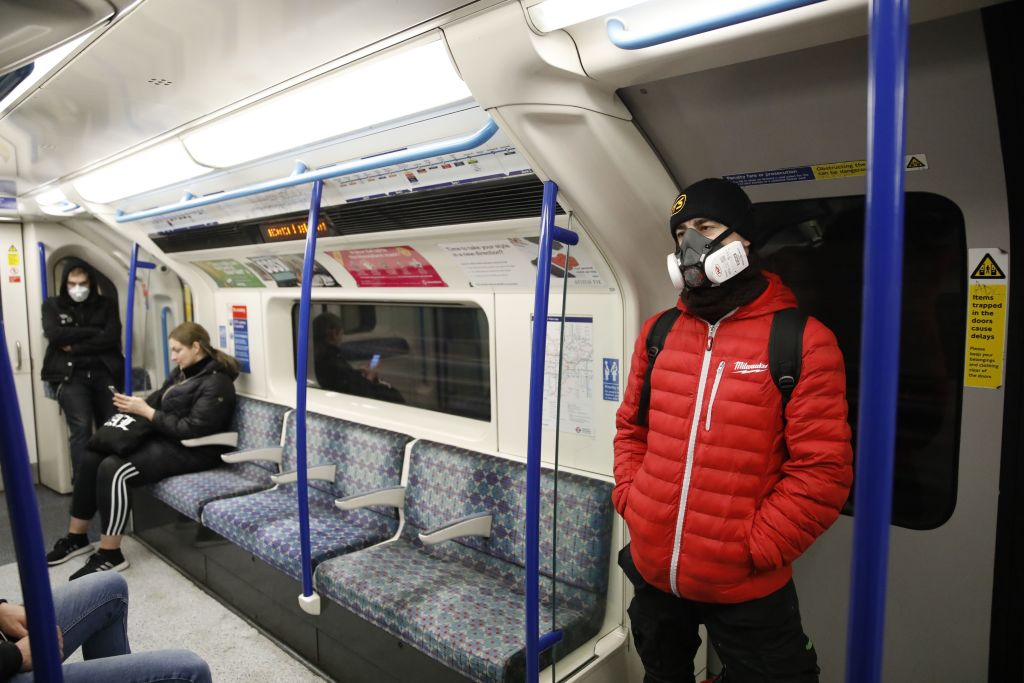For the past two weeks, my relatives and friends in China have been frantically messaging me worried for my health and mortified that Britain’s pubs and clubs were still open. With Boris Johnson’s announcement of a lockdown, their concern hasn’t eased as images of London’s parks as busy as ever raise doubt over how seriously the British government is taking the threat of coronavirus. News of the Prime Minster testing positive for the virus certainly didn’t help.
Among Chinese students in the UK, there is widespread panic that the window for returning to China may be closing, as the Chinese government blocked all foreigner passport holders from entering the country on Saturday. Many fear the ban could be extended to Chinese nationals.
For now, life in China seems much rosier than in Britain. As restaurants in the UK closed their doors, outlets in China have started to reopen, and a nation obsessed with food is finally getting its belly filled again. A few weeks ago, when the famous dim sum spot Taotao Ju reopened in the city of Guangzhou, people were so deprived of good food they queued around the block to the dismay of local authorities. At least they were all wearing masks.
Weeks of obedience to strict measures and a phased return to normality has seemingly paid off. Only a handful of cases have emerged in Wuhan in recent weeks (although, of course, there is some controversy about the accuracy of declared coronavirus statistics). Of the new cases to emerge in recent weeks, most appear to be among Chinese nationals escaping their homes abroad as the situation worsens overseas.
As the cloud of coronavirus over China appears to be lifting, other countries at least have slowly realised that, for now, the approach adopted by China seems to be the only real solution. Boris Johnson has finally toughened up and announced a crackdown on movement in Britain. The government’s decision to follow a ‘herding strategy’ – however momentarily – startled the Chinese and saw parents pleading with their children to leave at whatever cost. Reports followed of tickets on private jets being snapped up for tens of thousands of dollars by Chinese students in the US.
But it seems startling to think that just weeks ago, the world was still reprimanding China for its heavy-handed approach. When the outbreak was announced, the state told its 1.4 billion people to stay home. Nationwide New Year celebrations were cancelled with immediate effect. Cinemas were shut indefinitely, even though 2020 was supposed to be the year that the Chinese box office overtook the US.
Yet over the last fortnight, China’s draconian measures have become the model example across the world. Just as group gatherings were once forbidden in China, Germany’s new policy is even more exacting: no more than two people in public gatherings, if you can still call it that. A similar policy now applies in Britain, where socialising with people you don’t live with is off the cards.
But the fear that countries are not following its example to the letter is causing China’s deep pessimism of the West’s handling of the virus. People are in disbelief at pictures of the exposed faces of London’s commuters, packed tightly into tube carriages; social media is awash with videos of busy supermarkets that show similarly bare-faced customers.
All across Asia, everyone from toddlers to the elderly don masks as a minimum precaution. Yet the shortage of facemasks in the UK and the prejudice its wearers face are troubling signs for Eastern onlookers. As cases in the US exceeds that of China’s, the fact that the Trump administration is still hung up on phrases like ‘Wuhan Virus’ is, to many Chinese observers, at least, another example that Western democracies are yet to get their priorities sorted.
All this is good news for president Xi: it means that the Chinese have, for now, greater faith in their own government’s ability to suppress the virus, should ‘imported” infections take hold. They’ve done it once and can do it again, is the view among many in Beijing. Just as Western countries were safe havens for Chinese students eight weeks ago, the homeland is the favourite now, and they’re willing to do whatever it takes to get back.
Yuan Ren is a Chinese science and technology journalist. She tweets @girlinbeijing






Comments